Aurukun riots: The heroes who stepped up during the crisis
A Far North doctor who braved dangerous and volatile conditions in Cape York has spoken for the first time of the camp conditions where more than 100 people fled after a riot in Aurukun.
Cairns
Don't miss out on the headlines from Cairns. Followed categories will be added to My News.
EXODUS. With the flames from their torched houses at their backs more than 100 women, children and the elderly fled the troubled Cape York community of Aurukun on New Year’s Day.
The opening hours of the new decade had brought no respite from the violence, bloodshed and clan-based terror that had made Aurukun synonymous with the dysfunction with which all levels of government had responded to in those first chaotic hours.
The shire council went into lockdown and a code black was issued to State Government agencies warning of the danger of personal threat to those working in the area.
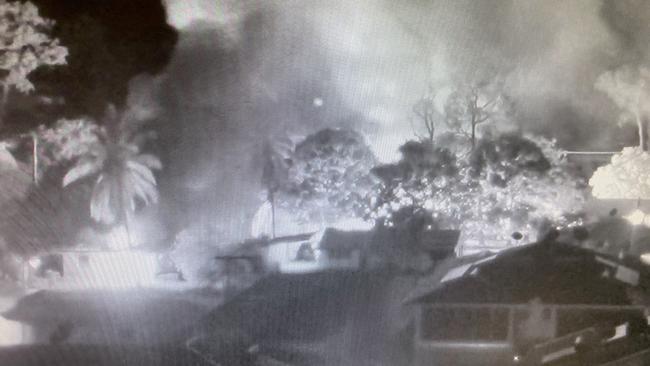
So it was up to a few individuals to step up while Queensland Police surged into Aurukun to quell the violence, the lessons of Palm Island and the 2015 Aurukun riots fresh in every officer’s mind.
COURAGEOUS GP
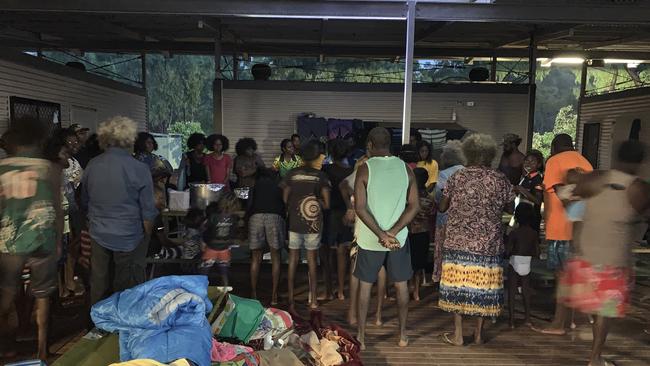
One brave GP – who like many caught up in this humanitarian emergency – has remained anonymous for fear of reprisal from government or, down the line, the families who launched “lit molotov cocktails into occupied houses”.
Responding to a call from a makeshift camp outside Aurukun, he acted.
“I thought if we don’t act quickly, we’ll be dealing with something much worse,” he said.
The GP’s safety could not be guaranteed by his employers given the still volatile situation.
“I thought ‘bugger it, I’ll go out anyway’,” he said.
“The violence between the mobs was directed toward each other and not at those trying to help them.
“I drove out to the camp – it was actually in a very nice location at the beach. If there was a dozen people there you would think you’d be at a remote camping ground. It wasn’t really designed for 100 people.”
Welcomed by the crew of military veterans of Kapani Warriors who had organised and run the camp, the doctor found a “safe but fairly spartan” set-up.
“The displaced persons were remarkably well, there was one kid with an abscess and he needed to be evacuated,” the GP recalled.
“Everybody else was potential trouble. You have diabetics off their insulin for four days and then they’d go into a coma.
“We had a relatively healthy but traumatised mob.
“Lots of potential for things to go wrong. Patients who need injections for heart disease.”
30KM TREK TO SAFETY
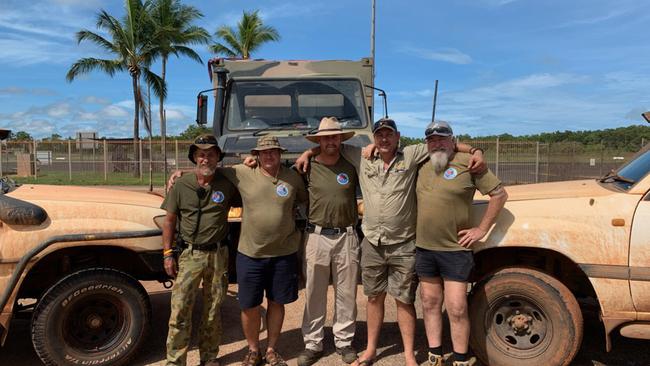
The doctor said some families had to leave their houses and walk up the coast for 30km.
“Everything they owned had been incinerated.”
It shook the doctor that this scenario, seen in conflicts marked by ethnic cleansing and sectarian violence around the globe, was playing out a mere 13-hour drive from Cairns.
“I had never seen anything like this,” he said.
“It was a refugee situation – people who were out of their own homeland with very few possessions, stuck somewhere else with not necessarily anywhere to go. This described those people thoroughly.”
HUMAN RIGHTS CRISIS
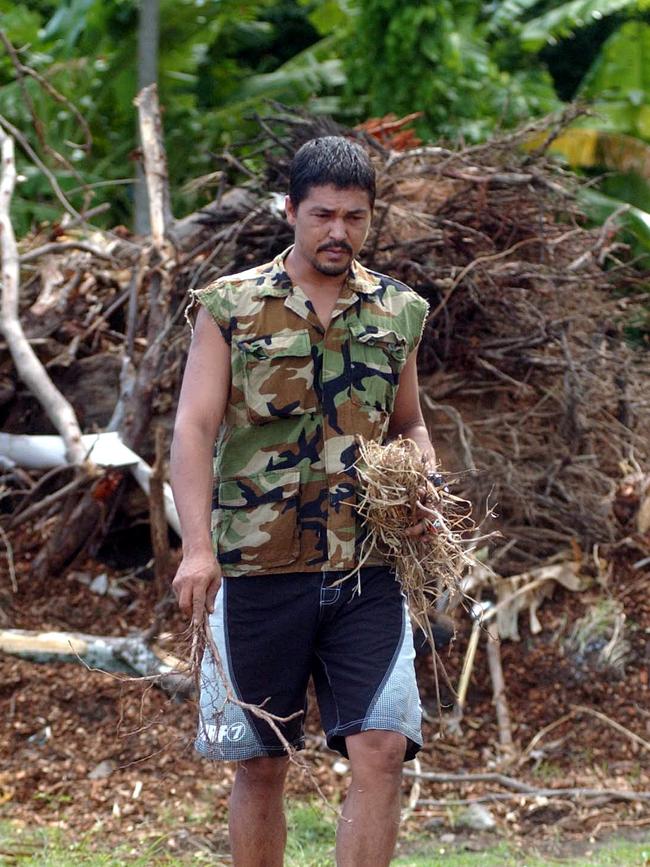
Former Carpentaria Land Council CEO Murandoo Yanner – described as the “Malcolm X of Cape York” – is still seething at what he saw as a betrayal of human rights by all levels of government.
“There was no response at all until yesterday,” he said on Thursday, January 9.
“There were ill people still in the bush, in danger of dying.”
His anger has spared neither side of the political scale.
“Both sides of parliament should be hanging their heads in shame,” Mr Yanner said.
“I’d be ashamed to go out in public if I was them.
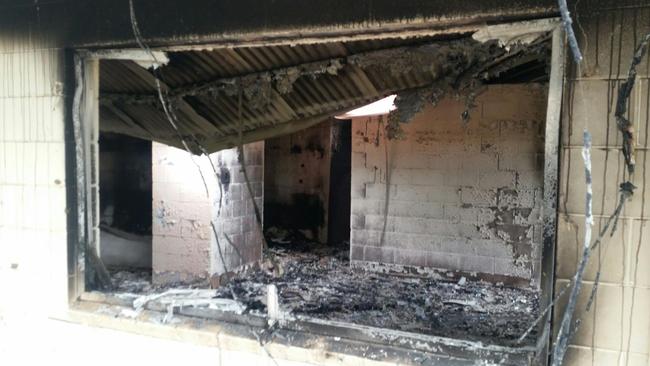
“It’s disgraceful – letting people who need dialysis rot away and die in the bush.
“This is a human rights issue – nothing to do with race, the riots or crime.
“Letting people with immediate medical needs and housing needs stay out in the bush is criminal. They are treating them like fifth-class citizens.” When State Government teams did finally mobilise to visit the camp, they were escorted by police and did not have a concrete plan of how to evacuate the camp or mediate between the warring families.
“It was a problem that already had a solution,” Mr Yanner said.
“Our culture has ancient systems in place,” he said.
“Once trouble blows up there is a system in place for mediation if the people are allowed to do it. Kapani was primely placed – they know the community and have boys that are from all the families.”
THREAT TO PEACE
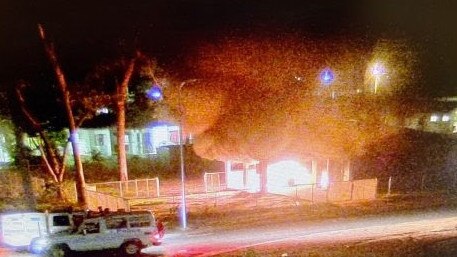
Aurukun’s ethnic problems lie in its very foundation.
Originally named Archer River Mission, the town was established by relocating indigenous families to the mission settlement.
Sixty families speaking 19 different languages have long dealt with jealousies and vendettas for more than 100 years.
The introduction of alcohol to the community, and later, the insidious presence of “sly grogging” added fuel to the fire.
“The distribution of families is based on historical family holdings … this led to a branding of families as either ‘top end’ or ‘bottom end’,” Aurukun Mayor Derek Walpo wrote in the 2013 Community Safety Plan.
FIRST TO RESPOND
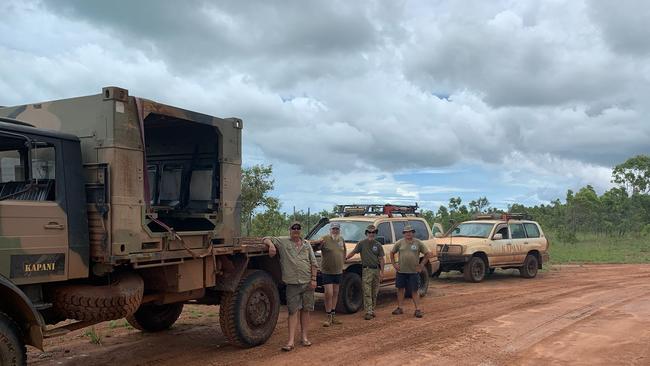
The only organisation which was perceived as impartial was Kapani.
“We initiated dialogue when no-one else was around, before anyone had responded,” Kapani operations director Dr Tim White said.
“The government is lucky that the bushfires are on. This is a national disgrace,” he said.
“On January 4 the parties had agreed to a process of dialogue and were happy for us to assist. We were since instructed that a State Government mediator was to take charge.”
In true get-the-job-done style, the motley Kapani crew got to business.
“My boys went around on foot and said they wanted to have a family meeting that night.
“All the people in town – 150 people – attended.”
Now an official mediator has taken charge and former Aurukun Council CEO Gary Kleidon leads the State Government response, Dr White is aware of Kapani’s shelf life.
“I don’t want to remain here as a bad smell and get in the way of the government. In these major incidents you have to get in, do your job well and get out.”
STOIC ELDER’S EXAMPLE
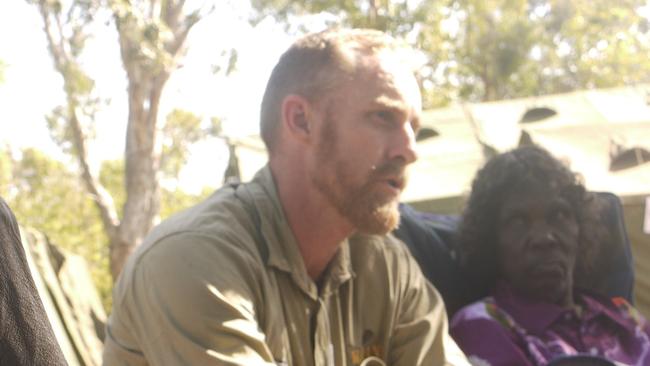
When the dust settles and the displaced population – many of whom have fled to Coen – return, Dr White said the legacy of the riots should be exemplified by the stoicism and poise of one woman, a terminally-ill Yunkaporta elder who had returned to Aurukun to “die in country” and found herself taken from home care in the back of an eight-tonne trailer nicknamed “the hay ride from hell”.
“She is fantastic, she is rock solid,” Dr White said.
“She’s a really impressive woman. She will pass away – and in her dying she has displayed incredible dignity and strength and a rally point for calm.
“She is the shining light in all of this.”
Originally published as Aurukun riots: The heroes who stepped up during the crisis
